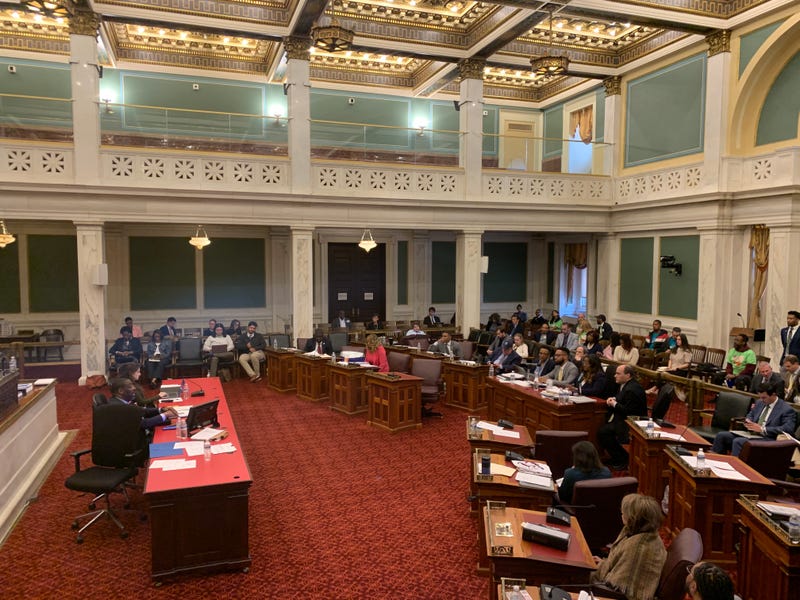
PHILADELPHIA (KYW Newsradio) — Philadelphia City Council got its long-awaited chance to explore the details of Mayor Cherelle Parker’s HOME Initiative for 30,000 new housing units at a budget hearing on Wednesday in City Council chambers.
The materials reviewed by council members offered a finer detailed overview of how funds for the ambitious plan would be raised and spent. Tiffany Thurman, the mayor’s chief of staff, called the investment “historic” in testimony.
“The HOME initiative is not just a housing plan but a bold and ambitious and attainable strategy with a comprehensive array of action steps that will deliver results,” she said.
While council welcomed the focus on housing and applauded some aspects of the plan, there were some points of tension when it came to who the housing would be built for.
Council member Jamie Gauthier questioned why so little of the plan’s effort went to the lowest income households.
“I don’t feel like we’re currently all the way there,” she said.
She was backed by Council member Rue Landau, who questioned a large portion of the funding on programs that benefit residents closer to the city’s area median income.
“We have a housing crisis for our lowest income folks, but I don’t think the answer is to expand it for folks who could actually have many more choices of where they could live,” said Landau.
Thurman disagreed with the notion that the city was forgetting about its lowest income residents.
“It’s really important that I dispel that notion that by expanding the focus to teachers and firefighters and nurses and municipal workers, that we’re forgetting about those who are considered the least of these,” she said. “That is not the case.”
City Planning and Development Director Jesse Lawrence also defended the plan’s current focus.
“There is no need to concentrate poverty, which is why we’re trying to provide upward mobility not just for those at the lower incomes, but also at the moderate incomes as well,” he said.
Other council members showed concerns about the $2 billion overall cost of the program and about yet undisclosed changes to zoning, building codes and the community approval process for new development.
There were also questions about the future of federal funding for the city and its potential impact on the effort. Finance Director Rob Dubow said the city could not replace the $2 billion it received last year, and while it’s bracing itself with back-up plans, it would not cut into the HOME Initiative.
“We think that uncertainty makes this program even more important,” said Dubow.
